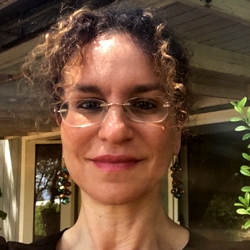

Search Results: nvc
-
Mediation is a great skill to have whether it's for your personal relationships or in the workplace. We look at four different techniques and their benefits in a role-play between two neighbours discussing a dispute.
-
Mediation is a great skill to have whether it's for your personal relationships or in the workplace. We look at four different techniques and their benefits in a role-play that takes place in an informal, unorganised setting.
-
Being put on the spot or confronted in an unexpected way can be an unpleasant experience to have. Even more so during lockdown when meetings are held on Zoom.
In Life Hack 35 we're exploring the feelings that come up from hearing a difficult message as well as ways you can respond. Esme recently had this experience and offered to record a one on one session with Gesine to explore the situation.
-
How can Nonviolent Communication practices support us when we're feeling depressed? Taking a look at some characteristics of depression and how they're linked to unmet needs, we offer some steps to take that help you reconnect with life and others.
-
We live in a world where there is a lot of anger. It can be a strong and intense emotion that we feel or receive from others sometimes on a daily basis. Whether that's an agitated partner, road rage, or a disgruntled colleague. While we're familiar with this feeling, we're not necessarily well equipped with how to express it in a healthy way. In this month's Life Hack, Shantigarbha takes us through a guided reflection on anger.
-
There's a growing trend to elevate feelings and personal truths (aka MY truth) to the point of being unassailable "facts". If I feel unsafe, then it must be because of you. As valid as a person’s inner world is, we risk overlooking what's beyond our own views, such as larger forces around us that continue to underwrite exploitation, violence, “othering”, etc. Instead, describe specific words and actions that a camera would record.
-
In this Life Hack, we're going deeper into self-empathy with a simple guided reflection that you can work through. This will be followed by a short exercise with a fill-in sheet led by Gesine and is something you can come back to as you wish.
-
-
-
-
We each have the power to be the creator of our own inner experience.
-
We're more likely to sacrifice trust, connection, and relationship quality when (1.) We use NVC to focus on being seen, understood, heard, or meeting our own needs in a way that eclipses our view and understanding of others needs; (2.) We don't clearly examine our intentions; and (3.) We use the NVC form so rigidly that it becomes difficult for others to connect with us authentically.
-
Exploring ways to stay compassionate and connected when someone seems angry or controlling.
-
Listen to Mary tackle one of the greatest challenges of facilitating an NVC group: How do you deal with hecklers and people you don't like? Mary offers insightful tips and helpful guidance.
-
Learn the basics of NVC to reduce stress, improve connection and respond with clarity.
-
Could our "need for autonomy" be getting in the way of "partnership consciousness" (as NVC is sometimes called). Could "autonomy" also block healthy relationships with not only ourselves and with others, but also with the planet? This article invites us to consider how "autonomy" may colour our NVC practice at the peril of our critical values. Values such as our care for impact, shared responsibility, interdependence, compassion, consideration, and more...
-
Sometimes life gets so busy that even the things you enjoy seem to go by without you receiving that feeling of joy. It's important that even when we are busy to celebrate life to the full. In this month's Life Hack Gesine explores 7 things to keep in mind when remembering to celebrating life.
-
Have you ever said 'I'm Sorry' to someone, only for it to leave you feeling disappointed and lacking connection? In some cultures, saying 'I'm sorry' has become too easy and is used for all sorts of situations. Whether it's just to excuse yourself as you pass in front of someone taking a photo, or if you've truly hurt a close friend. So when we really need to communicate regret, how can we do so in a way that acknowledges the situation and the connection?
-
We each have the power to be the creator of our own inner experience, no matter what is going on externally. The moment you imply wrongness on others, you give power to them. In this excerpt, Aya Caspi shows that the more self-responsibility you take, the more freedom you will have.  
-
CNVC Certified Trainer Miki Kashtan shares a tip on holding a group's needs while empathizing with a single person in the group.
Quick Links

Stay in Touch!
We value your privacy, won't share your email address and you can easily unsubscribe any time.

















